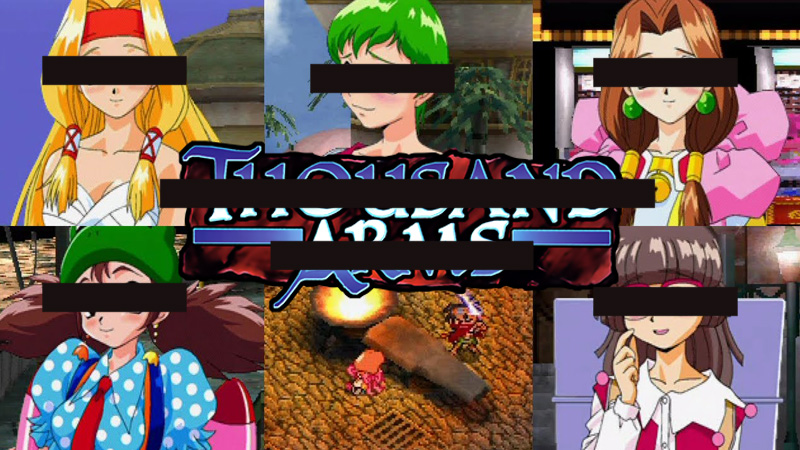
This is an editorial piece. The views and opinions expressed in this article are those of the author and do not necessarily represent the views and opinions of, and should not be attributed to, Niche Gamer as an organization.
The late 90s and early 2000s was when anime’s popularity was beginning to take an unrelenting stranglehold in the West. Toonami was on the air and rerunning episodes of Dragon Ball Z, Ronin Warriors, Sailor Moon, Gundam Wing and Tenchi Muyo!; thus guaranteeing an interest for a generation of otaku to come.
The appeal would naturally overlap into video games, and to this day we are still feeling the waves where the crest of that high water mark broke. As a result, anime-style JRPGs were also becoming more viable in the Western game market.
Titles like Lunar, Star Ocean 2, Xenogears, Jade Cacoon, and Grandia would go on to be beloved PlayStation classics during the late 90s and early 2000. Anime as a medium proved to be fresh and versatile for video games, and introduced all kinds of cheeky flourishes that comes with it.
Fun tropes like lovable perverted heroes and fan service became a staple of JRPGs in this time. Sadly as the age of “current year” politics ravages our culture; some of the appealing aspects of anime-style JRPGs have begun to fade.
Thousand Arms was one JRPG that completely embodied the turgid and sultry qualities in anime from its era. Today, Thousand Arms would likely be passed on localization or potentially censored. So what are its bannable offenses?
Offense: The Art of Spirit Blacksmithing
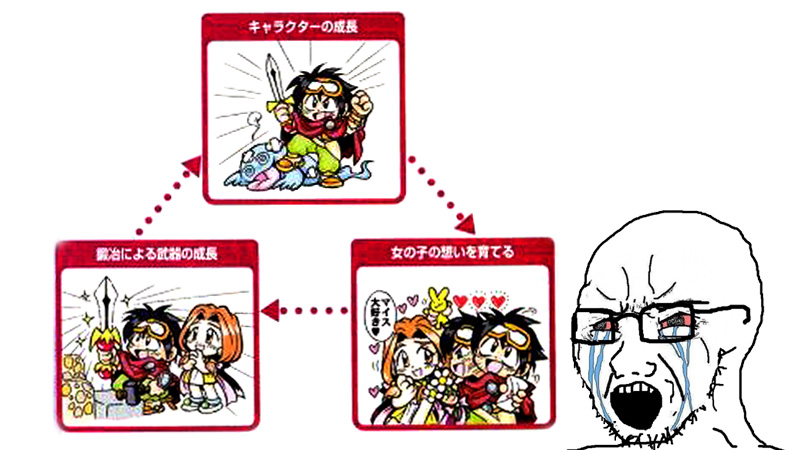
Thousand Arms‘ story may have been a typical adventure of a young hero who makes friends and together defeat an evil gang of bad guys, but how the protagonist finds the strength within himself to defeat evil is anything but typical. Meis Triumph comes from a long line of spirit blacksmiths; and in this setting that means in order to forge a sword, he has to learn how to be smooth with the ladies.
Spirit blacksmithy is more than just a game mechanic to strengthen the party members, it was also a plot point that drove Meis and the antagonists forward in the story. How it works is that every spirit blacksmith relies on the bond and attraction of a pretty girl to forge a powerful sword. The greater the attraction, the better the weapon; and this can also result in learning powerful abilities.
Through out the adventure, Meis will meet with eight girls that fit the anime archetypes. While there are a few who are also combative party members, most are not, and Meis will have to court them all if he has any hope in braving some tough turn-based battles.
Thousand Arms was published during the wild west days of JRPG localization where Atlus was not above tampering with the balance; resulting in a much harder game than intended.
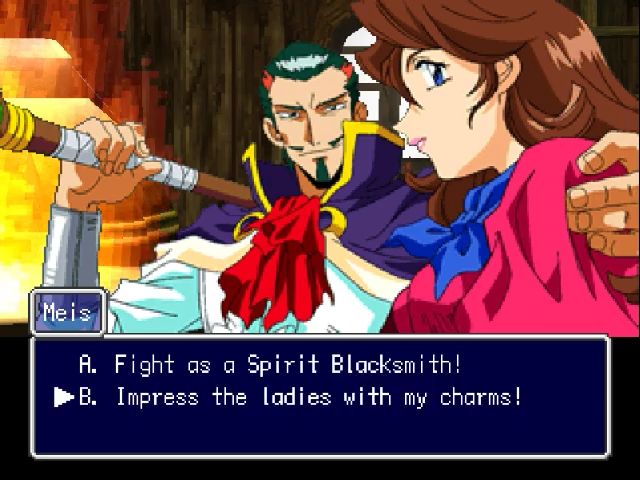
This was during the very late 90s; an era where it was very uncommon for visual novels to get any localization of any kind, and Thousand Arms had some elements of this genre in its dating mechanics. This module of the game was a major selling point for Thousand Arms, and was what made it feel like an anime that you could play.
There were over ten hours of voice acting, and a majority of it went into the scenes where Meis could do his best at get the babes to like him. Compounded with a ton of huge and detailed sprites that had decent animation and solid voice acting; Thousand Arms excels at making the dating experience feel like something much more modern than something from 1999. Even today, the effort and presentation of these scenes crush modern examples.
The courting phase of spirit blacksmithing is as amusing as the antics of any anime from the 90s. Irreverent dialogue and the lewd comment here and there keeps the experience lighthearted and cheeky. Today, this would be seen as “objectification,” since Meis is using these women to power himself up.
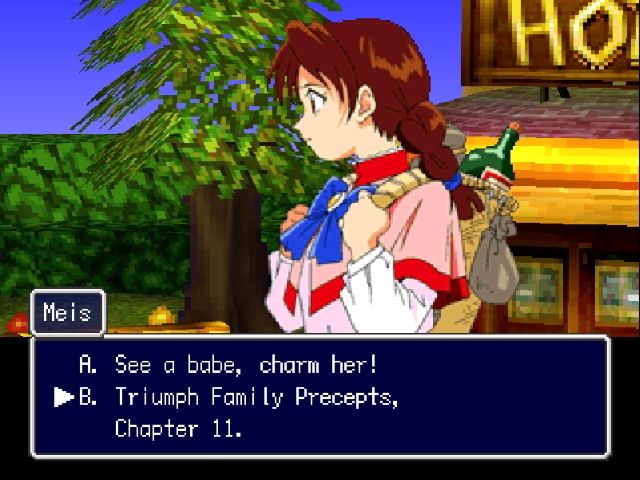
Meis has a score with every one of the main date-able girls, and as the adventure unfolds he is able to make dialogue choices. He can easily fall into the trap of being the horny and desperate simp that he is, but the game gives players the choice. There is a time and a place for everything after all, but Thousand Arms revels in Meis constantly acting like a horn-dog.
Some of the best dialogue and reactions are a result of choosing the horny options every time. Even during the dating, it’s worth it to botch some of the dates just for the girl’s reactions. Even funnier is that these girls are pretty cool, and sometimes go along with the more absurd dialogue options.
Meis is a hopeless romantic at heart, despite his horniness. He is eager to kiss almost every girl he meets, but he especially has eyes for Sodina. There are many instances of Meis trying to get to first base, and it comically never works out for him. This would offend every blue checkmark, and they would completely ignore the completely innocent humor behind it.
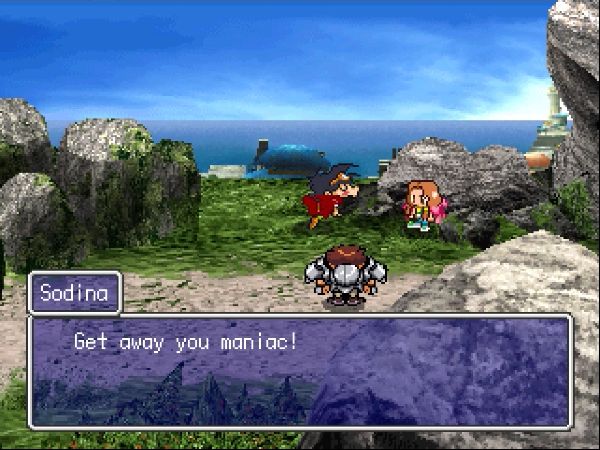
The mechanics of spirit blacksmithy are not exactly defined in the world of Thousand Arms. It can be assumed that maybe the whole dating element might be more of a mental thing for Triumph men, and having a girl by their side might just be inspirational to them.
What guy doesn’t try a little harder at his craft when a beautiful woman is watching? It can be interpreted as just magic, but the game does not ever give a definite answer.
Meis is constantly getting comeuppance for his absurd advances on girls. Wokesters would naturally ignore this aspect of Thousand Arms‘ narrative, and would focus entirely on the fact that he is one extremely eager beaver who wants some beaver.
Thousand Arms is no more explicit than the kind of content seen in the anime shown on Toonami back in the early 2000s. Meis’ antics are utterly harmless, but modern society would label his behavior as problematic, and would condemn the developers for their spirit blacksmith mechanics. Labels and meaningless terms like “toxic” would be thrown around, and some innocent employees might lose their job.
Offense: Cheeky Fanservice
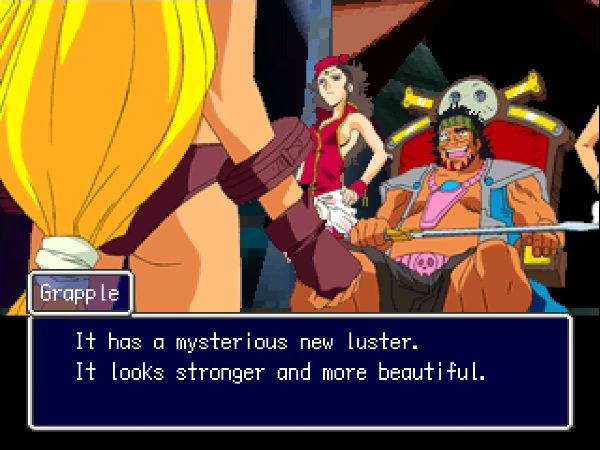
It wouldn’t be a 90s style JRPG without a little cheeky glimpse at some of the goods. Thankfully, Thousand Arms has several attractive females in it, and the game is not bashful at allowing the player getting an eyeful of some of their more desirable characteristics.
Thousand Arms happens to be a Takehiko Ito joint; the same character designer behind the beloved sci-fi adventure, Outlaw Star. He also was involved in the plentiful panty production of Agent Aika, so you know the man knows his way around a girl’s curvature.
Ito brings his panache to character designs; the heroes are scrappy and look like they are ready to take a beating, and his girls are supple and tight in all the right places. Costume design especially emphasizes on key areas for maximum appeal, and allow the viewers’ imagination to run wild thanks to his deft guidance of the pen.
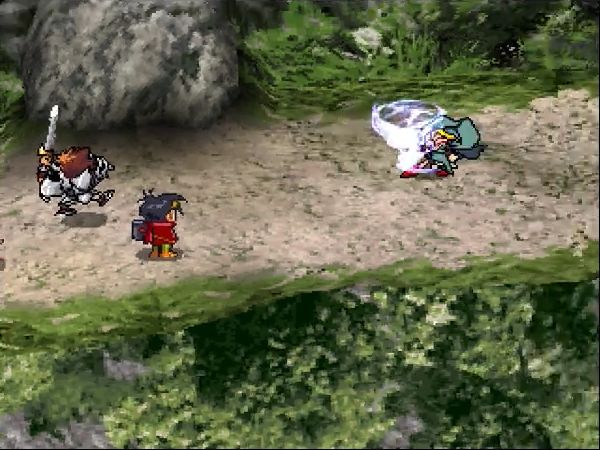
These days, fan service games are often frowned upon by the mainstream at large, but they still exist. Games were different back in the 90s and early 2000s; a game could be taken seriously as a broad epic fantasy adventure with impressive production values, and still manage to have enjoyable sequences of gratuitous T&A.
In the current year, scenes of a girl’s disguise being blown away to reveal a bikini ready body would be reserved for a low budget Japanese game. Thousand Arms‘ approach is the kind of scene that would fit right in the kinds of anime most kids in the 90s would have grown up seeing.
The execution in Thousand Arms has the scene in question serve several purposes. The first purpose establishes Wyna’s character who is brave, tough, and resourceful enough to bother with a disguise. It is also a set-up and pay-off to Muza’s fear of women, so when he blows off her disguise with twister blade, her reveal stuns him in a comical fashion.
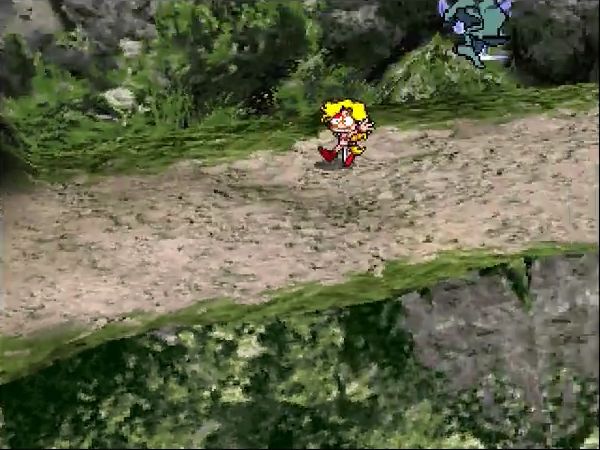
The scene also importantly shows off just how inhibited Wyna and her band of pirates are. She dresses only in a bikini and despite this, she is the tomboy in the cast of dating options. She also was very obviously designed with great care, and makes a big impression when she makes her appearance.
She is also a great support party member, and can throw down along with Meis and the gang with her gigantic hammer. What girl wouldn’t want to be like Wyna? She’s cool, tough, and really easy on the eyes. Her femininity is not compromised to make her a viable fighter like in most western developed games.
Wyna is only one example in Thousand Arms. Every girl has their moment to shine, and the developers also are aware who will be most interested in their game. This is a game where intimacy is a core theme to the story; ergo, it makes sense that from the perspective of a hot-blooded male like Meis would concentrate on the female figure as much as he does.
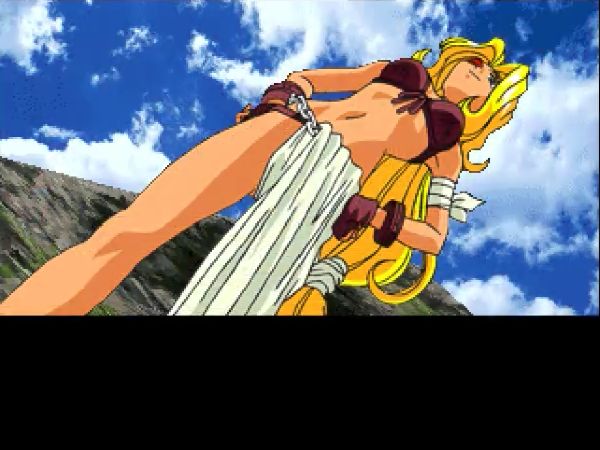
Wyna’s reveal would be very different in the current year. If the Twitter-yakuza found out about the fan-service in Thousand Arms, the aforementioned scene would be put on the same level as sexual assault. Blue checkmarks would say how demeaning it is and how it triggers victims.
Context would be completely and utterly ignored. The character designer would be bullied off social media, and Atlus would release a letter of apology. In the worst case scenario, the game might get recalled or potentially patched to alter the scene in some embarrassing manner.
Today, the best chance at seeing fan service is in games made by Nippon Ichi, Compile Heart, or Inti Creates. Unfortunately they make games under the line to guarantee profit, and the chances of them attempting something as ambitious or impressive as Thousand Arms is extremely remote.
Offender: Meis Triumph
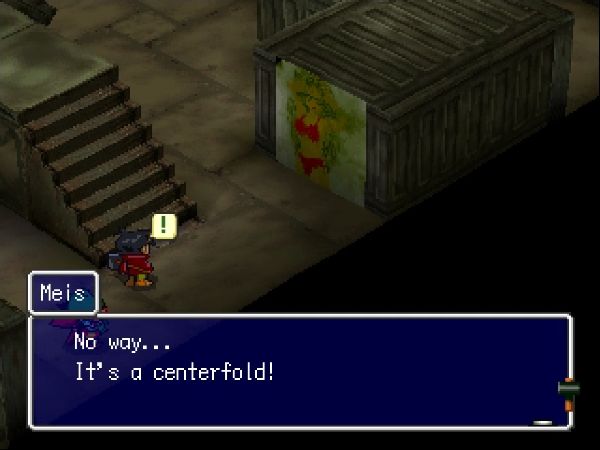
The fan-service and spirit blacksmith are only in Thousand Arms because they support the protagonist Meis Triumph. He is a protagonist of an era that is long gone. The idea of an extremely horny hero who is effectively like an anime RPG version of Pepe LePew is so extreme by today’s standards.
If Pepe LePew got axed from the Space Jam sequel for being an offensive and out-dated character, then Meis doesn’t stand a chance in an industry that has an extreme bias against anime style JPRGs. Thousand Arms is dense with flavor text where the player reads Meis’ internal thoughts, and the one thing that is always on his mind is always women and how he can score.
Unfortunately, Thousand Arms is a very elusive and cost-prohibitive PlayStation game to get a hold of. Copies for a complete version go into the hundreds, and it never got a PSN release in any region. To be a hero who also appreciates the female form so openly is paramount to a war crime today, and maybe the powers that be would prefer Thousand Arms to be buried.